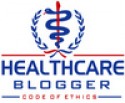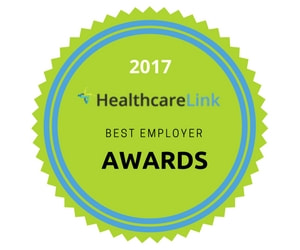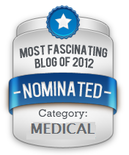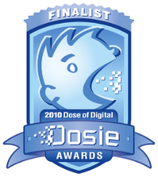While it’s great news that some tech funds seem interested in dipping their toes into the healthcare space, it’s concerning that the investors with the most resources are not necessarily the ones who understand healthcare the best.
Tech investors, in general, are not always comfortable with physicians, and seem much more at home with engineers and developers. These investors also tend to gravitate to businesses selling directly to consumers rather than dealing with the sordid complexities of our current healthcare system.
Many tech investors are also — understandably — drawn to the power of data, and the possibility of analytics, a sensible affinity but one that at times can translate into an excessively reductive view of medicine that fails to capture the maddening but very real ambiguity of medical science, and especially of clinical practice.
While almost everyone contemplating the problems of the current healthcare system acknowledges that often stubborn, intransigent doctors can be part of the problem, it’s arresting how many technologists don’t also view doctors as a key element of the solution; instead, there seems to be a common, techno-utopian vision in which medicine has been profoundly disrupted, and the role of physicians largely replaced by computers.
In the words of digital health investor and doctor Bijan Salehizadeh, “IT rooted VCs don’t know how to relate to or speak the language of physicians. They bow at the altar of revolutionary disruption. That works in non-regulated consumer markets. Not in highly regulated hierarchical fragmented spaces like HCIT.”
The more technology investors I speak with, the more I worry there’s something elemental about medicine that many don’t seem to understand – and worse, they don’t always know what they don’t know.
Doctors have a unique perspective
The experience of being a doctor provides unique insight into the meaning and significance of health.
For starters, as a physician, you develop a profound, overwhelming appreciation of how serious health is, and you experience and help patients and their families in dealing with every phase of illness. When I listen to a young entrepreneur extol his or her new approach to saving large files or sharing music as an example of changing the world, I appreciate and love their enthusiasm and passion – how can you not? At the same time, I also find myself reflecting upon other talks I’ve heard – Judah Folkman discussing his discovery of angiogenesis, or Bruce Walker discussing advances in HIV therapy – and I think: now this – this is changing the world.
Second, for all the emphasis placed in medicine on arriving at a diagnosis and suggesting a treatment, the truth is that medicine is just so much less precise than anyone could possibly imagine. Diseases, diagnoses, best practices: all are so much grayer and less-well demarcated than most appreciate, and patients are far more complex. For all the advances in molecular diagnostics and high-tech imaging, medicine remains far more scientism than science.
Third, once you’ve had the experience of caring for patients, had the privilege of developing relationships with patients over time, it’s impossible not to be moved by the power, complexity, and importance of the doctor/patient connection. Twenty-something Palo Alto engineers may struggle to understand why anyone would waste time with human care providers, but I suspect the many patients with serious concerns or chronic conditions who are fortunate enough to receive regular care would likely offer a very different perspective on the value of this unique relationship.
At the same time, while physicians may genuinely aspire to deliver the best care possible, they demonstrably struggle achieving this; many rely on vague recollections rather than current data, and are notoriously reluctant to discard bad habits (such as not washing hands), and embracing new recommendations (such as utilizing a basic checklist), despite the demonstrated evidence for both.
The real opportunity in medicine, then, is not to replace physicians, but to enable them, and enable patients. This will entail recognizing the foundational value of the close, longitudinal relationship between doctor and patient, and then building off of this by creating tools for both patients and physicians that will enhance this therapeutic connection. To develop such tools, a company will need to combine deep healthcare knowledge with technological sophistication, and create solutions that deliver not just clicks, but durable improvements in patient health.
Areas of opportunity and challenge
One category of opportunity here is turning mHealth into mMedicine (to borrow two terms from Dr. David Albert, founder of AliveCor). Right now, there’s an overwhelming number of consumer-focused wellness apps and fitness gadgets, products like the Eatery and Fitbit which may be pleasant to use, and could potentially support health. The real opportunity is robustifying these sorts of measurement technologies and approaches, so that they not only provide casual entertainment, but could also be used to drive and monitor real medical benefit – see here and here for a discussion on the importance of these sorts of measurements in medicine.
A second opportunity is behavior modification – a staggering amount of illness results from the many poor choices each of us make every day, habits that are notoriously difficult to change. The degree of user engagement engendered by many gaming and social apps is remarkable, and could be harnessed to drive measurement improvements in health. Early versions of this have been used for employee wellness programs, but I suspect there are real opportunities for platforms that can maintain patient interest over time (a huge problem right now), and which can nudge the patient towards improved behaviors and better health.
A third category: care delivery/health system improvement. It’s difficult to identify an individual aspect of the current care system – from hospital admissions to managing illness at home — that doesn’t appear to be a historical relic, and which seems thoughtfully designed with the patient in mind. There are so many opportunities to rethink aspects of this, and ask how could this process be better constructed – ideally incorporating key aspects of design thinking. Traditionally, healthcare innovation has focused on new drugs and devices, but there’s an increasing recognition of the need to improve systems as well – a key focus of leading-edge initiatives such as Dr. Arnold Milstein’s Clinical Excellence Research Center at Stanford, aimed at improving healthcare services.
A fourth category: Chunking big data. While the idea of chasing big data in health is certainly not new, figuring out how to actually acquire the relevant data remains non-trivial, and turning this information into actionable insight remains an abiding challenge – with the key word being actionable, i.e. usable by physicians, or patients, in as frictionless – and ideally delightful – a fashion as possible. Success will require far more than robust analytics. Combining clinical and payor data, meanwhile could be used to support value-based healthcare, highlighting the best way to allocate limited resources. This information could used to improve the quality and efficiency of care, and also could be provided to other financial stakeholders (which will likely increasingly include patients themselves) to support informed decision making, a la Castlight.
A key challenge that all entrepreneurs face, and which seems especially pronounced in the healthcare space, is finding not only an important problem to solve, but a way to get paid for solving it. The perverse incentives in the current healthcare system mean that in many cases, physicians and hospitals are actually rewarded for not being better – they often make money on the extra charges that suboptimal care can generate.
This may explain better than anything else why tech investors like consumer plays – investors understand them, and know how to assess the value, how to monitor, and when to pivot. They’ve also made a lot of money on at least some of these companies, and understand the business model.
In contrast – and unfortunately – the business case for improving care can be surprisingly difficult to make; it’s likely that entrepreneurs may need to carefully identify a specific situation (a concierge practice? A private oncology clinic?) where their proposed improvements can demonstrate the most compelling impact. It’s also why some forward-thinking healthcare entrepreneurs such as Avado’s Dave Chase have focused so much of their efforts on the need for incentives better aligned with patients’ interests.
Partnerships for the Future
While there’s not going to be a magic formula for digital health companies, a leadership team combining healthcare and technology experiences seems a common pattern.
“Homogenous teams all coming from outside of healthcare have the deck stacked against them,” digital health investor Salehizadeh asserts. “The best teams couple doctors with savvy business people or technical founders.”
These sorts of partnership are exactly what Halle Tecco of digital health incubator Rock Health, say she’s seeing among many of the young companies Rock Health supports.
According to Tecco, “Any startup that excludes the MD perspective puts themselves at a disadvantage… just like any doctor-founded company that overlooks design or business model puts themselves at a disadvantage. Most startups in the space need it all! An understanding of the system, an insight for disruptive business models, an eye for design, and a back-end engineering ninja to help the product scale.” She adds, “This is an exciting time for cross-collaboration.”
While it’s far too early to say whether these collaborations are going to yield transformative digital health companies, it’s hard to argue with the approach. Moreover, given the urgent need for innovative healthcare solutions, we should all hope that these broad-based partnerships involving physicians and technologists represent the beginning of a wonderful, productive, and healthy relationship.

 RSS Feed
RSS Feed































